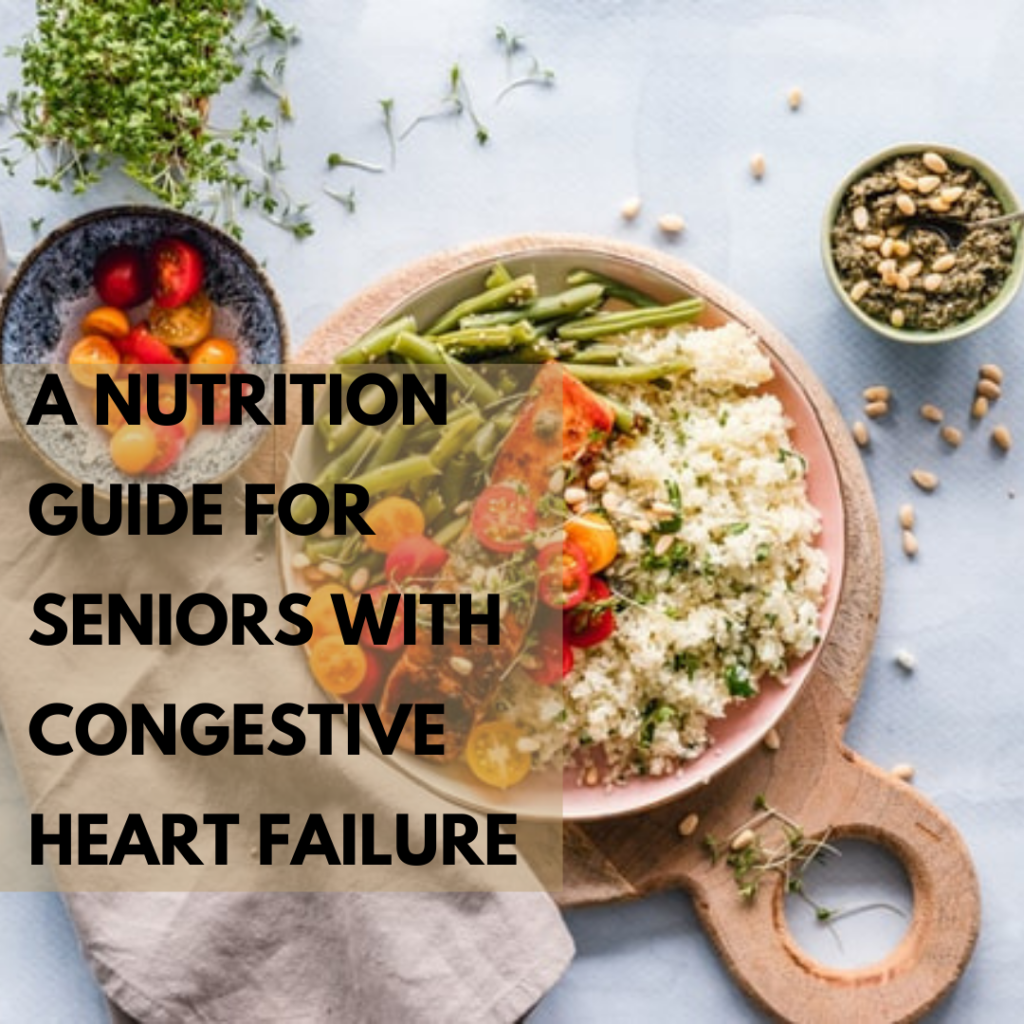Over time, our bodies will gradually develop physical ailments due to our unhealthy current lifestyles or hidden genetic illnesses. You can generally foresee these difficulties by seeing how your parents are dealing with their old age. Since their bodies are more vulnerable to chronic medical conditions, they can have various circulatory or cardiovascular system complications.
One condition that is dangerously difficult to manage is Congestive Heart failure (CHF). It’s a condition that puts your senior loved ones at extreme risk of suffering a fatal attack. This is why it’s vital to manage their nutrition carefully.
Understanding CHF and the fragility of senior age
CHF makes a person’s heart too weak to pump blood effectively due to fluid build-up around the heart and other parts of their body. Although this doesn’t implicate an immediate heart failure, it does mean a person is more dependent on dietary restrictions to ensure their safety. Having a healthier diet reduces the risk of CHF symptoms, which is why it’s necessary to be particular about what they eat.
If you’re planning a meal plan for a senior with CHF, here are three things you should consider:
Stay clear of food high in sodium, cholesterol, and saturated fat
On the top of your senior’s “don’t eat” list is food containing sodium or salt. Sodium’s properties cause the body to retain more fluid and significantly increase blood pressure. Thus, a person who already has problems with fluid levels should avoid high levels of sodium. This includes processed meat, frozen dinners, soups, instant pudding, and assorted condiments.
Next on the “don’t eat” list is cholesterol-rich food that can clog a person’s arteries. Since a person with CHF doesn’t have enough blood-pumping power, they will have more severe cholesterol and saturated fat build-up issues.
Bring in fresh fruits, vegetables, and fiber
After crossing off some unhealthy items off their diet, add in more healthy substitutes with nutritious ingredients. Fresh fruits and cooked vegetables are high in nutrients, with the plus-side of having low fat, sodium, and cholesterol. Some fruit options also have antioxidant properties that are excellent for your senior loved one. Foods high in fiber can also help regulate bowel movement and lower cholesterol and blood sugar levels.
Keep in mind that juice and canned variants of fruits and vegetables aren’t always the best option for the elderly. However, it’s still a better alternative than none at all.
Be mindful of water intake
Besides the food options above, it’s also necessary to regulate the water drinking habits for a senior with CHF. Since people with CHF have issues with fluid regulation, drinking more water can strain their weak hearts. Generally, people with CHF should only aim to consume no more than two liters of water. Any more can put them at risk of cardiovascular and circulatory problems.
Conclusion
Once your senior loved ones move past a certain age, it’s expected that they will experience more difficulties in handling daily tasks. Simply getting up or moving from one room to another can be too taxing for their health, even more so if they have to leave the house. This is why many families look for alternatives in improving their lifestyle and addressing their medical needs. Thankfully, there are numerous options you can take regarding our senior loved one’s well-being.
At Bridge Home Health and Hospice, we can provide you with options for various high-quality senior health services in California. Qualified nurses and healthcare professionals lead our programs to ensure your senior loved one’s comfort and safety. To learn more about our services, contact us at (800) 476-0043.

